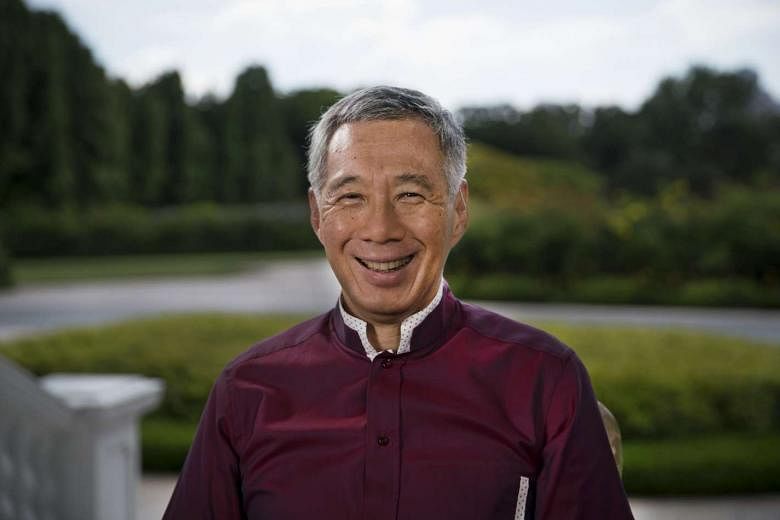Mounting global uncertainties, rising interest rates and lacklustre business and consumer sentiment mean the Singapore economy is in for another slow year in 2017.
But economists say there are glimmers of hope amid the gloom, particularly in some segments of manufacturing as well as up-and-coming industries like technology.
The Singapore economy grew "one plus per cent" last year, Prime Minister Lee Hsien Loong said in his New Year message on Saturday.
"Overall, we are not doing badly, considering the global economic uncertainties," he noted, adding that the growth figure is "still positive though less than we hoped for".
"While the labour market has eased, unemployment remains low and we are still creating new jobs. I know many employers and workers are concerned, but rest assured the Government is watching this closely," said Mr Lee.
The Trade and Industry Ministry will release advance estimates of economic growth for last year's fourth quarter and the full year tomorrow.
The growth figure Mr Lee hinted at in his speech indicates that Singapore escaped a recession last year.
But it also means the economy logged its slowest rate of growth since 2009, when the global financial crisis was in full swing. This is not the worst slowdown Singapore has had, but it is the longest - the Republic's economy has grown below 5 per cent every year since 2012.
There will be no respite this year. Government forecasters expect growth to come in at between 1 per cent and 3 per cent for this year.
"We are looking at another slow year," said UOB economist Francis Tan, who is tipping growth of 1.8 per cent for this year. He noted the weakness will come mainly from the service sector, which makes up two-thirds of the economy.
Segments like education and healthcare - less affected by economic cycles - will stay resilient, but slow global growth and poor sentiment will likely weigh on wholesale trade, finance and insurance, and business and professional services.
"Discretionary items will be off the list for many people," Mr Tan said, adding that this will translate into slower wage growth and weaker labour demand.
Credit Suisse economist Michael Wan agreed the labour market will be stuck in the doldrums this year, saying: "The data out so far suggests that the labour market continues to deteriorate as per our expectations.
"Resignation rates continue to decline, the job vacancy to unemployed ratio fell, while employment growth contracted, with retrenchments also inching up further."
Manpower Ministry data showed layoffs reached 13,730 in the first nine months of last year, the highest for the period since 2009.
Mr Wan expects economic growth to slow to 1.1 per cent this year, from 1.4 per cent last year.
Economists also noted a host of global uncertainties this yearwill hit Singapore's small, open economy.
Interest rates are climbing, after the United States Federal Reserve's decision to raise rates last month.
This will mean higher interest costs for firms and households, and is likely to further crimp consumption and investment. "This comes on top of slowing wage growth and a soft labour market... and will also be yet another higher business cost for firms," Mr Tan said.
Mr Wan also pointed to potential protectionist measures by US President-elect Donald Trump's administration. It remains to be seen how much of Mr Trump's election campaign rhetoric will translate into actual policies, but there are concerns that the aggressively anti-trade stance he took while campaigning could weigh on world trade.
"(These measures) are unlikely to be directed specifically at Singapore, but Singapore will still be affected indirectly by a trade slowdown amid policy uncertainty or if a trade war between China and the US breaks out," added Mr Wan.
Still, Mr Tan said, it is not all doom and gloom. He noted that some segments of the manufacturing sector, in particular electronics, appear to have turned the corner and are gaining traction.
There are tentative signs that things could be looking up for manufacturers. Singapore's Purchasing Managers' Index - an indicator of manufacturing activity - showed that factory activity grew for a third straight month last November, after more than a year of contraction.
And there is still strong hiring demand in some segments of the economy, such as information and communications technology. Job vacancies in this burgeoning sector are outstripping supply, so much so that Singapore may be short of an estimated 30,000 IT professionals this year, according to government estimates.


